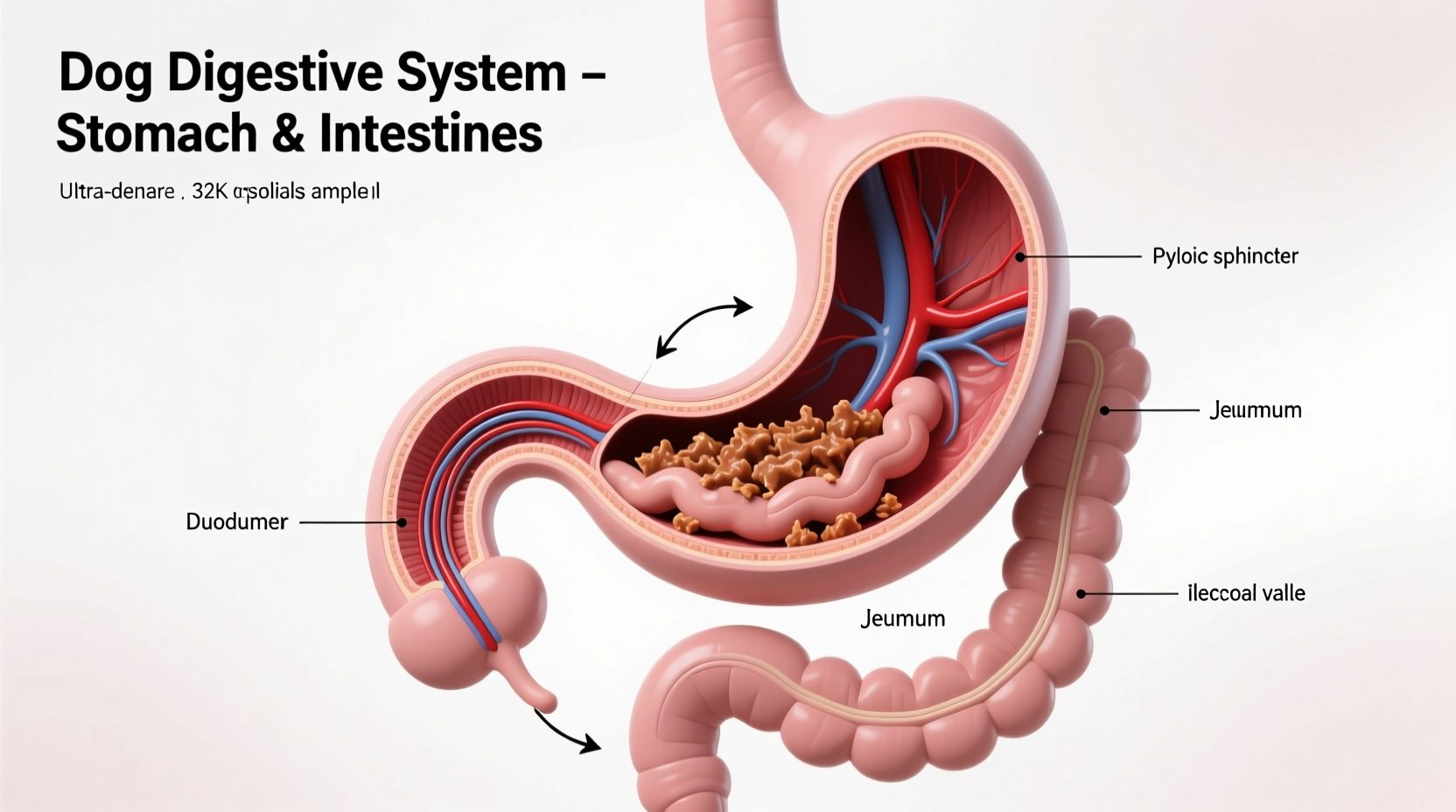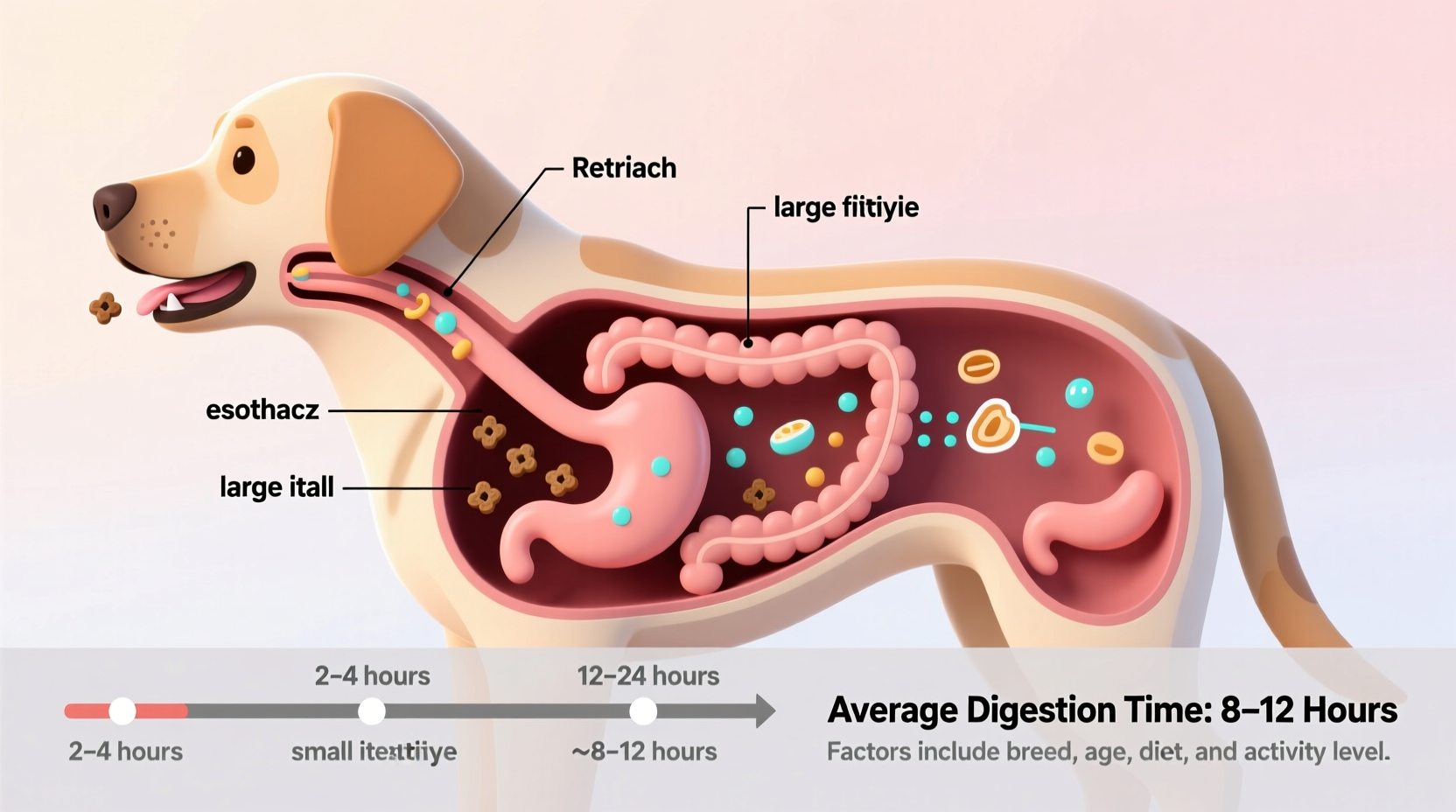Most dogs digest food within 8-10 hours, though the complete digestive process from ingestion to elimination typically takes 10-24 hours. This timeframe varies based on your dog's size, diet, age, and overall health condition.
Understanding Your Dog's Digestive Timeline: What Every Owner Should Know
As a dog owner, knowing how long it takes for your pet to digest food helps you monitor their health, establish proper feeding schedules, and recognize potential digestive issues. Whether you're concerned about your dog's eating habits or simply want to understand their biological processes better, this guide provides science-backed information you can trust.The Complete Digestive Process: A Step-by-Step Timeline
Understanding how food moves through your dog's system requires examining each stage of digestion. Unlike humans, dogs have a shorter digestive tract optimized for processing meat-based diets, which affects their digestion speed.| Digestive Stage | Location in Body | Timeframe | Key Processes |
|---|---|---|---|
| Ingestion | Mouth | Seconds to minutes | Limited chewing, swallowing whole pieces |
| Stomach Processing | Stomach | 4-8 hours | Acid breakdown, protein digestion begins |
| Small Intestine | Small intestine | 2-6 hours | Nutrient absorption, enzyme activity |
| Large Intestine | Large intestine | 4-12 hours | Water absorption, waste formation |
| Elimination | Rectum | Varies | Defecation |
Factors That Significantly Impact Digestion Time
Several variables affect how quickly your dog processes food. Recognizing these helps you interpret your pet's digestive patterns accurately.Dog Size and Breed Considerations
Smaller breeds generally digest food faster than larger breeds due to their higher metabolic rates. According to Cornell University College of Veterinary Medicine research, toy breeds may complete digestion in as little as 6-8 hours, while giant breeds can take 18-24 hours for the same process.Food Composition Matters
The type of food you feed directly impacts digestion speed:- Dry kibble: Takes longest to digest (typically 10-14 hours) due to lower moisture content
- Wet/canned food: Digests faster (8-12 hours) because of higher moisture content
- Raw diets: Generally digests quickest (6-10 hours) as it most closely matches natural canine diet
- High-fiber foods: Slow digestion as fiber adds bulk and requires more processing
Age and Health Factors
Puppies digest food more quickly than senior dogs due to their faster metabolism. Dogs with certain health conditions like exocrine pancreatic insufficiency or inflammatory bowel disease may experience significantly altered digestion times. The American Kennel Club reports that healthy adult dogs typically maintain consistent digestion patterns, while variations often signal underlying issues.
Recognizing Normal vs. Problematic Digestion Patterns
Understanding what's normal for your dog helps identify potential problems early. Most dogs eliminate waste 8-12 hours after eating, with one to two bowel movements per day considered typical.Signs of Healthy Digestion
- Consistent bowel movement schedule
- Firm, well-formed stools
- No excessive gas or discomfort
- Normal appetite without vomiting
When Digestion Time Indicates a Problem
If your dog's digestion time falls significantly outside the 8-24 hour range or shows sudden changes, it may indicate issues. Research from the Journal of Veterinary Internal Medicine shows that digestion taking less than 6 hours often indicates malabsorption issues, while digestion exceeding 36 hours may signal gastrointestinal obstruction or motility disorders.Practical Tips for Supporting Healthy Digestion
Implement these evidence-based strategies to help maintain your dog's digestive health:Feeding Practices That Make a Difference
- Feed consistent meals rather than free-feeding to establish regular digestion patterns
- Allow 10-15 minutes for eating to prevent gulping air
- Avoid exercise immediately before or after meals
- Provide fresh water at all times to aid digestion
When to Consider Dietary Adjustments
If your dog consistently shows signs of digestive distress, consult your veterinarian before making changes. The North American Veterinary Community recommends gradual transitions over 7-10 days when changing dog food to prevent digestive upset.When to Consult Your Veterinarian About Digestion Concerns
While occasional variations in digestion time are normal, certain symptoms warrant professional evaluation. Contact your vet if your dog shows:- Diarrhea lasting more than 24 hours
- Constipation exceeding 48 hours
- Vomiting more than once in 24 hours
- Visible discomfort or pain during digestion
- Sudden changes in digestion time without dietary changes











 浙公网安备
33010002000092号
浙公网安备
33010002000092号 浙B2-20120091-4
浙B2-20120091-4